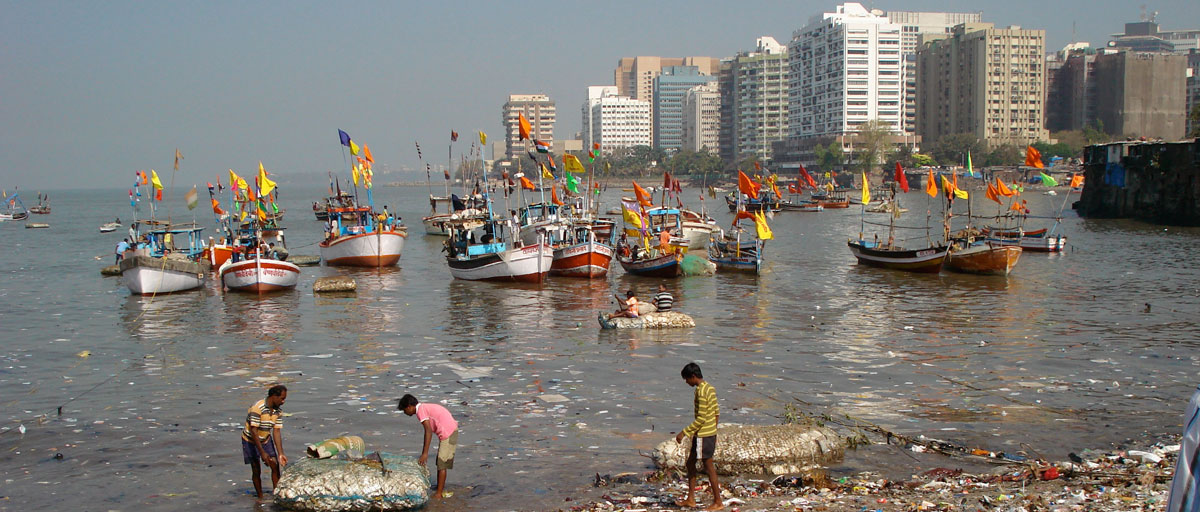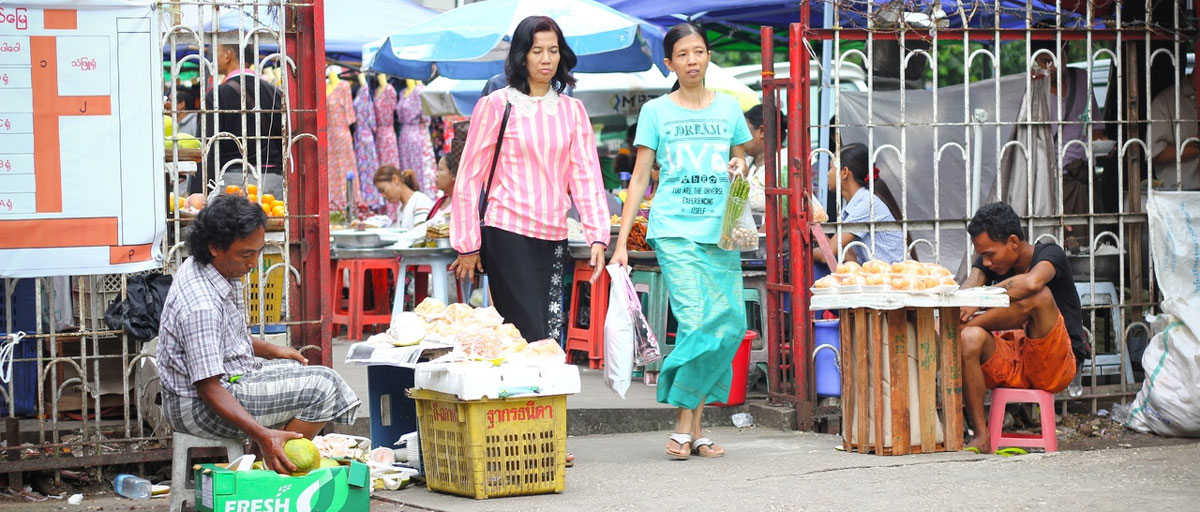
How can we do development differently? In a series of deep dives, centre researchers and partners will explain emerging concepts within sustainability science that are crucial in order to understand rapid global environmental change caused by humans, and to assess potential solutions. Photo: M. Troell/Azote
Bildtext får vara max två rader text. Hela texten ska högerjusteras om den bara ska innehålla fotobyline! Photo: B. Christensen/Azote
RESILIENCE AND DEVELOPMENT
Taking action in a complex world
The second in a series of seven "deep dives" looking into the connections between resilience and development
Text
This deep dive series sets the context for doing development in a rapidly changing world. We will be sharing selections of short, engaging video chapters taken from the recent Massive Open Online Course; ‘Transforming development – the science and practice of resilience thinking.’
In this second deep dive we present a set of videos which make a compelling case for why a complexity perspective is a key element of resilience thinking.
Features and dynamics of complex systems
Rika Preiser
Senior Researcher, Centre for Complex Systems in Transition, Stellenbosch University
Many agree that the world and the challenges in development practice today are complex. Less clear is what people think comprises that complexity, or why it is complex and not just complicated. In this lecture, Rika leads a discussion on what it means when you meet a resilience scientist and they say ‘this system is complex.’ This video will leave you with a solid understanding of how complex adaptive systems work.
Persistent problems and unwanted surprises
Jamila Haider and Garry Peterson
Researchers, Stockholm Resilience Centre
The term “traps” and “surprise” are often used as a reason for why organizations are turning to resilience as an approach in development. In this video, we explore these two concepts more deeply. Jamila Haider provides a review of the many different traps that can occur or be created in complex systems, and considers the ways in which it is possible to broaden how these ideas are used in development practice to better account for social-ecological resilience and sustainability. Garry Peterson highlights how living in the Anthropocene means living with surprise. However, he also reminds us that there are multiple types of surprise, and that those surprises are often themselves changing.
Resilience thinking for practice
Paul Ryan
Resilience Practitioner, GRAID
Garry Peterson
Researcher, Stockholm Resilience Centre
There are accepted “norms” in managing systems, many of which are focused on the ideas of optimization, and which have been highly successful in the past. However, Garry Peterson and Paul Ryan challenge how these approaches play out in practice, suggesting some easy-to-use tools, questions for your own work, and the possible mindsets that may help us change how we approach designing and implementing development interventions for complex challenges.
Seven building blocks for applying resilience thinking
Oonsie Biggs
Stockholm Resilience Centre and South African Research Chair, Social-Ecological Systems and Resilience, Centre for Complex Systems in Transition, Stellenbosch University
This video is an introduction to the guiding principles that can be used when applying resilience thinking in practice. It only introduces what key elements to manage in a social-ecological system for resilience and provides a solid background on various concepts that appear time and time again in resilience research and practice.
Weaving diverse knowledge(s) and evidence
Maria Tengö
Researcher, Stockholm Resilience Centre
A lot of hope is pinned on the idea of bringing different actors together to share knowledge and create new ways of thinking. However, this is not an easy task, and throughout history, certain knowledge has been privileged over others. Maria Tengö suggests a practical, but powerful, way forward through the important, but often, messy reality of interacting across diverse knowledge systems and how to ensure their integrity and the values embedded within them are honoured meaningfully.
Practitioner reflection: Southern Africa Food Lab – making change happen
Scott Drimie
Director, South African Food Lab
Senior Researcher, Centre for Complex Systems in Transition, Stellenbosch University
In this video, Scott Drimie shares his lessons learned on applying resilience concepts within the South African food system, including how to confront the racism, inequality, land degradation, climate change, and our own ideas and positions, while experimenting with novel ways of transforming the food system.
Discover more deep dives
Deep dive 1: The new context for development and why it matters
Deep dive 3: Transformation and rethinking development practice
Deep dive 4: The journey from theory to practice
Deep dive 5: Our intertwined planet: New understandings for development
Deep dive 6: Why global perspectives matters for local development
Deep dive 7: Reimagining development practice
- Deep dive 1: The new context for development and why it matters
- Deep dive 3: Transformation and rethinking development practice
- Deep dive 4: The journey from theory to practice
- Deep dive 5: Our intertwined planet: New understandings for development
- Deep dive 6: Why global perspectives matters for local development
- Deep dive 7: Reimagining development practice

Learn more about how to apply resilience thinking with Wayfinder, an online platform for resilience assessments, representing a major innovation in resilience practice.







